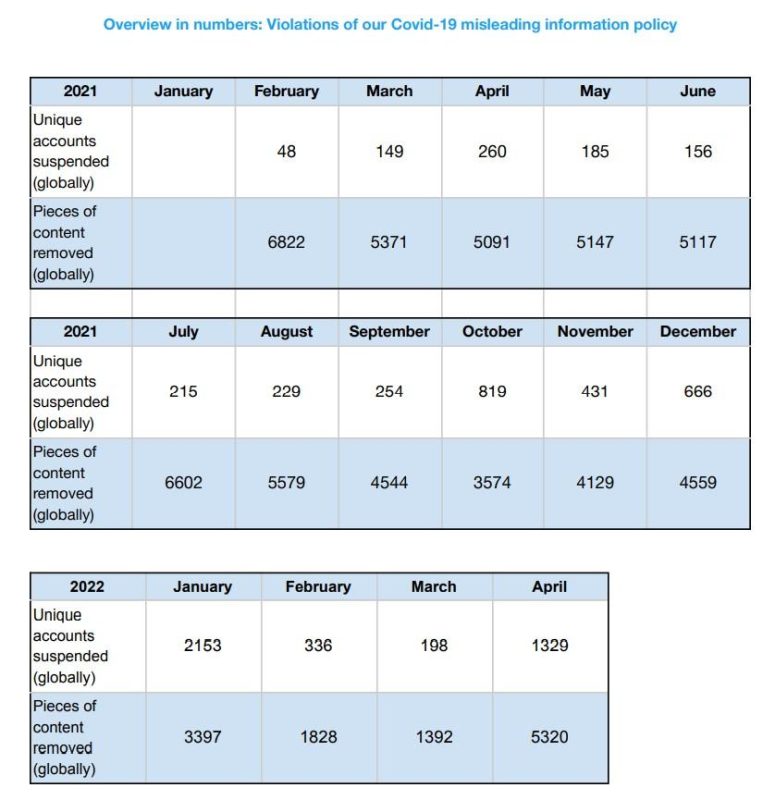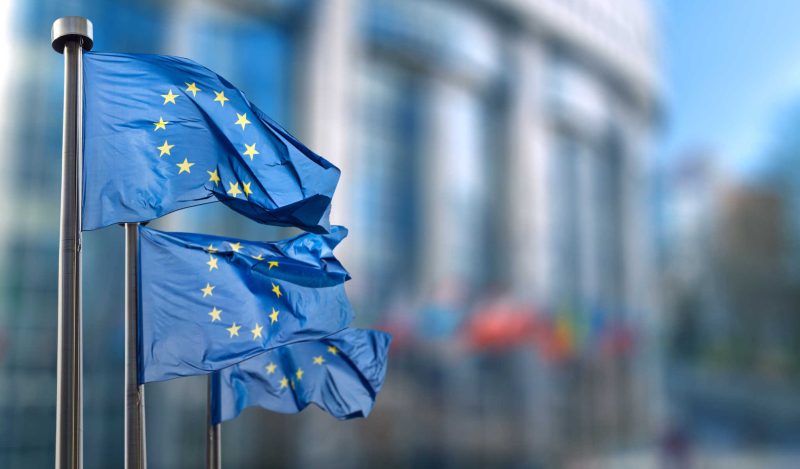Twitter is obviously at the center of what is commonly known as “Big Tech censorship.” It has been busily using the censorship tools at its disposal – from removing or quarantining tweets to surreptitiously “deboosting” them (shadow-banning) to outright account suspension – for at least two years now. And those who have managed to remain on the platform will have noticed a sharp upturn in its censorship activities starting last summer.
For most of this time, the main focus of Twitter censorship has, of course, been supposed “Covid-19 disinformation.” By now, almost all the most influential advocates of early treatment or critics of Covid-19 vaccines on Twitter have had their accounts suspended, and most have not made it back.
The list of the permanently suspended includes such prominent voices as Robert Malone, Steve Kirsch, Daniel Horowitz, Nick Hudson, Anthony Hinton, Jessica Rose, Naomi Wolf, and, most recently, Peter McCullough.
And myriad smaller accounts have met the same fate for committing such thought crimes as suggesting that the myocarditis risk of both mRNA vaccines (Moderna and BioNTech/Pfizer) outstrips any benefit or pointing to mRNA instability and its unknown consequences for safety and efficacy.
But why in the world would Twitter censor such content? The expression “Big Tech censorship” implies that Twitter et al. are censoring of their own accord, which invariably elicits the retort that, well, they are private companies, so they can do what they want. But why would they want to?
The notion that it is because the denizens of Silicon Valley are “leftists” or “liberals” is clearly not very helpful. They may well be. But whether mRNA vaccines are safe and effective, as advertised, is a factual matter, not an ideological one. And, in any case, the purpose of private for-profit corporations is, needless to say, to make a profit. The motto of the shareholder is not “Workers of the World Unite!” but “Pecunia non olet:” money doesn’t stink. Shareholders expect management to create value, not destroy it.
But what Twitter is doing by censoring is precisely subverting its own business model, thus undermining profitability and putting downward pressure on share price. Free speech is obviously the lifeblood of every social media. Censored speech – like the tweets of a Robert Malone or a Peter McCullough or, for that matter, a Donald Trump – translates into lost traffic for the platform. And traffic is, of course, the key to monetizing unrestricted online content.
We could call this the “Twitter conundrum.” On the one hand, there is no way that Twitter could possibly “want” to censor Covid dissident voices, or indeed any voices, and thus restrict its own traffic. But, on the other hand, if it fails to do so, it risks incurring massive fines of up to 6% of turnover, which would likely represent a deathblow to a company that already has not turned a profit since 2019. Twitter, in effect, has a financial gun to its head: censor or else.
Wait, what? There has been much talk recently of the Biden administration exerting informal pressure on Twitter and other social media to censor unwelcome content and voices, and lawsuits have even been launched against the government for infringing the alleged victims’ 1st Amendment rights. But all that such pressure appears thus far to have consisted of are some chummy nudges in emails.
There has surely not been any threat of fines. How could there be without a law authorizing the executive branch to impose them? And such a law would be blatantly unconstitutional, since precisely what the 1st Amendment states concerning freedom of speech is that “Congress shall make no law…abridging” it.
But there’s the rub. Congress, needless to say, has not made any such law. But what if a foreign power made such a law and it de facto abridged the freedom of speech also of Americans?
Unbeknownst to most Americans, this has in fact occurred and their 1st Amendment rights are being vitiated, namely, by the European Union. There is a financial gun pointed at Twitter. But it is not the Biden administration, but rather the European Commission, under the leadership of Commission president Ursula von der Leyen, that has its finger on the trigger.
The law in question is the EU’s Digital Services Act (DSA), which was passed by the European Parliament last July 5 amidst almost total indifference – in Europe as much as in the United States – despite its momentous and disastrous implications for freedom of speech worldwide.
The DSA gives the European Commission the power to impose fines of up to 6% of global turnover on “very large online platforms or very large online search engines” that it finds to be non-compliant with its censorship requirements. “Very large” is defined as any platform or search engine that has over 45 million users in the EU. Note that while the size criterion is limited to users in the EU, the sanction is based precisely on the company’s global turnover.
The DSA has been designed to function in combination with the EU’s so-called Code of Practice on Disinformation: an ostensibly voluntary code for “combatting disinformation” – aka censoring – that was originally launched in 2018 and of which Twitter, Facebook/Meta and Google/YouTube are all signatories.
But with the passage of the DSA, the Code of Practice is evidently not so “voluntary” anymore. There is no need for complex legal analyses to show that the sanction provisions in the DSA are intended as the enforcement mechanism for the Code of Practice. The European Commission has said so itself – and in a tweet no less!

In fact, the Code has never really been all that voluntary. The Commission had already made its desire to “tame” the US tech giants known previously, and it had already flexed its muscles, imposing massive fines on Google and Facebook for other alleged offenses.
Moreover, it has been brandishing the threat of the DSA fines since December 2020, when it first put forward the DSA legislation. (In the European Union, the Commission, the EU’s executive branch, has sole authority to initiate legislation. Quaint American notions like the separation of powers are not a thing in the EU.) The eventual passage of the legislation by the parliament has always been treated as a mere formality. Indeed, the above-cited tweet was posted on June 16 of this year, three weeks before the parliament voted on the law!
Curiously, the publication of the draft legislation coincided with the authorization and subsequent rollout of the first Covid-19 vaccines in the EU: the legislation was unveiled on December 15 and the first Covid-19 vaccine, that of BioNTech and Pfizer, was authorized by the Commission just six days later. Vaccine skeptics or critics would quickly become the principal target of EU-driven online censorship thereafter.
Six months earlier, in June 2020, the Commission had already placed the focus of the Code firmly on alleged “Covid-19 disinformation” by launching a so-called Fighting COVID-19 Disinformation Monitoring Programme, in which all Code signatories were expected to participate. Some attempts had already been made at monitoring compliance with the Code, and signatories were expected to submit annual reports. But, as part of the Covid-19 monitoring program, signatories were now required – “voluntarily,” of course – to submit monthly reports to the Commission specifically dedicated to their Covid-19-related censorship efforts. The rhythm of submission was subsequently scaled back to bimonthly.
Twitter’s reports, for example, contain detailed statistics on Covid-related content removal and account suspensions. The below chart, showing the evolution of these numbers from February 2021 (shortly after vaccine rollout) through April 2022, is taken from Twitter’s latest available report from June of this year.

Note that the data concerns content removed and accounts suspended globally: i.e. Twitter’s efforts to satisfy the Commission’s censorship expectations do not only affect the accounts of users based in the EU, but of users all around the world.
The fact that many, if not most, of the accounts that have been suspended in this connection were written in English raises particularly troubling issues. In the aftermath of Brexit, after all, only around 1.5% of the EU’s population are native English speakers! Even supposing that policing speech was a good thing, what business does the EU have policing speech, or requiring social media platforms to police speech, in English, any more, say, than in Urdu or Arabic?
The Twitter report and those of other Code signatories can be downloaded here. If the numbers were to be continued, they would undoubtedly show a sharp upturn in censorship activities starting in late June/early July. Twitter users interested in the subject could not help but have noticed the massive purge of Covid dissident accounts that occurred over the summer.
And this upturn was in fact entirely to be expected, since on June 16 – the day the European Commission posted its warning to online platforms reproduced above and three weeks before the passage of the DSA – the Commission announced the adoption of a new, “strengthened” Code of Practice on Disinformation.
The timing was surely not coincidental. Rather, the adoption of the “strengthened” Code of Practice and the passage of the DSA served as a kind of one-two punch, putting “very large online platforms and search engines” – Twitter, Meta/Facebook and Google/YouTube, in particular – on notice about what would be in store for them if they failed to fulfill the EU’s censorship requirements.
Not only does the new Code contain no less than 44 “commitments” that signatories are expected to meet, but it also contains a deadline for meeting them: namely, six months after signature of the Code (cf. paragraph 1(o)). For original signatories of the new Code like Twitter, Meta and Google, this would bring us, namely to December. Hence, the sudden rush of Twitter et al. to prove their censorship bona fides.
The “strengthened” Code was supposedly written by the signatories themselves, but under extensive “guidance” from the European Commission that was first made available in May 2021. Chillingly, the Commission “guidance” refers to the kind of censorship data presented above as “key performance indicators” (pp. 21f). (Different euphemisms are used in the Code itself.)
As part of the new Code, moreover, signatories will participate in a “permanent task-force” chaired by the European Commission and that will also include “representatives of the European External Action Service,” i.e. the EU’s foreign service (Commitment 37).
Think about this for a moment. For the last several months, American commentators have been up in arms about occasional, informal contacts between social media companies and the Biden administration, whereas those same companies have been systematically reporting back to the European Commission on their censorship efforts for the last two years now and they will henceforth be part of a permanent task force on “combatting disinformation” – aka censoring — chaired by the European Commission.
While the former may or may not constitute collusion, the latter is obviously something much more than mere collusion. It is a matter of explicit EU policy and law that directly subordinates online platforms to the Commission’s censorship agenda and requires them to implement it on pain of ruinous fines.
Note that the DSA gives the Commission “exclusive” – in effect, dictatorial – powers to determine compliance and to apply sanction. For the online platforms, the Commission is judge, jury and executioner.
Again, there is no need to enter into the tortuous details of the legislative text to show this. All official EU pronouncements on the DSA highlight the fact. See here, for instance, from the parliament’s Internal Market Committee, which notes that the Commission will also be able to “inspect a platform’s premises and get access to its databases and algorithms.”
Does anyone really imagine that the Biden administration has anything remotely like this sort of capacity to direct the actions of online platforms? Make no mistake about it. Twitter censorship is government censorship. But the government in question is not the US government, but rather the European Union, and the EU is, in effect, imposing its censorship on the entire world.
Those hoping that Elon Musk’s buying Twitter, if it does indeed come to pass, will put an end to Twitter censorship are going to be in for a rude awakening. Elon Musk will be facing the same conundrum as Twitter’s present management and will be just as much hostage to the EU’s censorship requirements.
Lest there be any doubt about this, consider the below video, which, despite the forced smiles, has indeed something of the feel of a hostage video. In early May – just a couple of weeks after Twitter accepted Musk’s original purchase offer and, yet again, before the European parliament had even had the opportunity to vote on the DSA – the EU’s Internal Market Commissioner Thierry Breton traveled to Austin, Texas, to explain the “new regulation” to Musk.
Breton then memorialized Musk’s cringeworthy submission to the EU’s demands in the video posted on his Twitter feed.
Join the conversation:

Published under a Creative Commons Attribution 4.0 International License
For reprints, please set the canonical link back to the original Brownstone Institute Article and Author.









